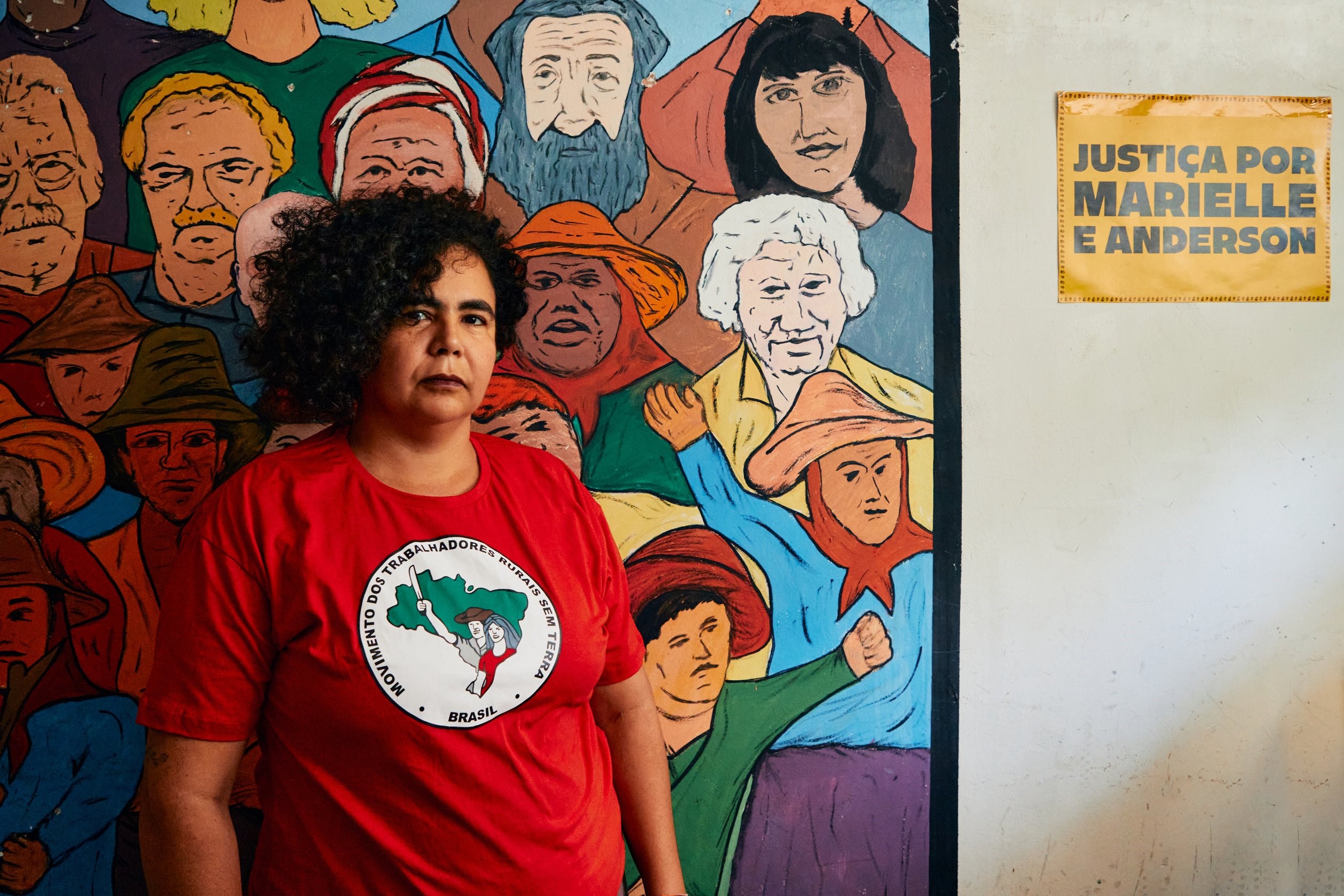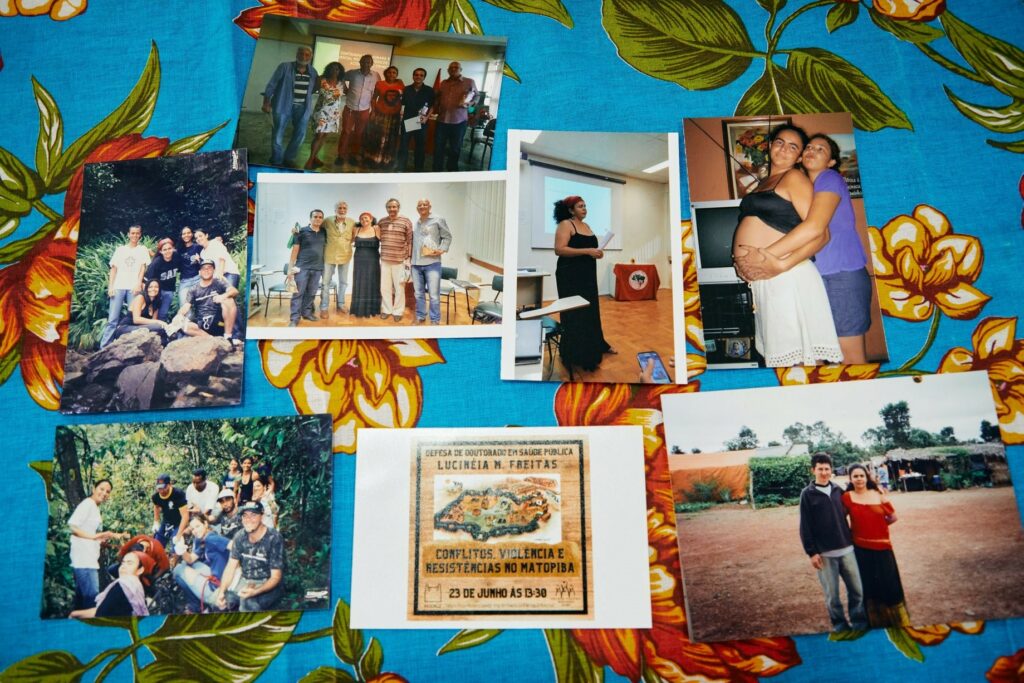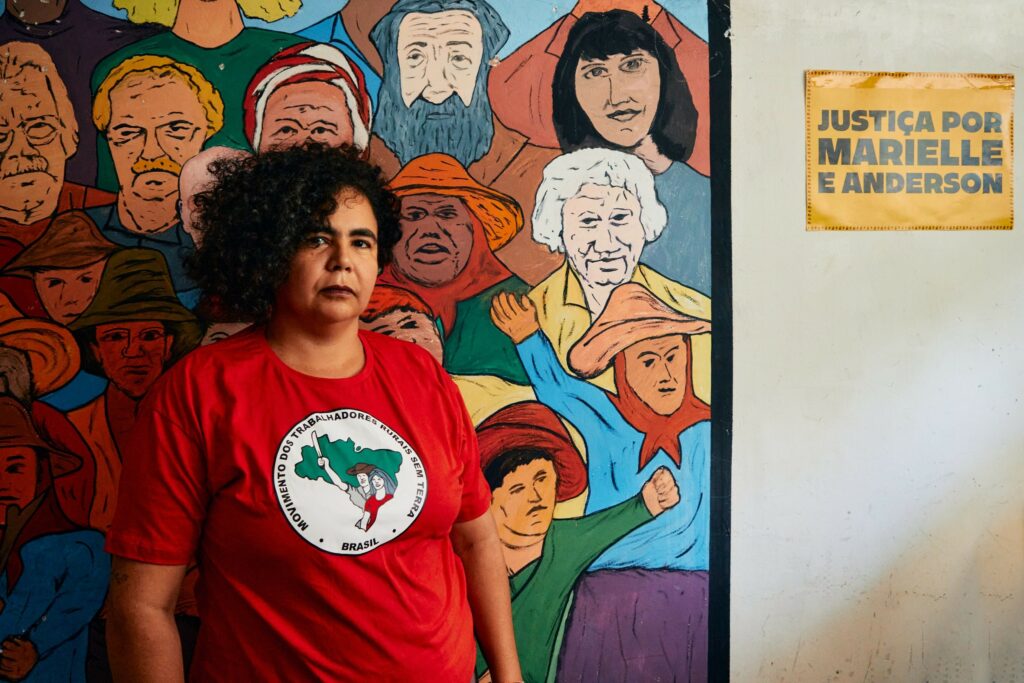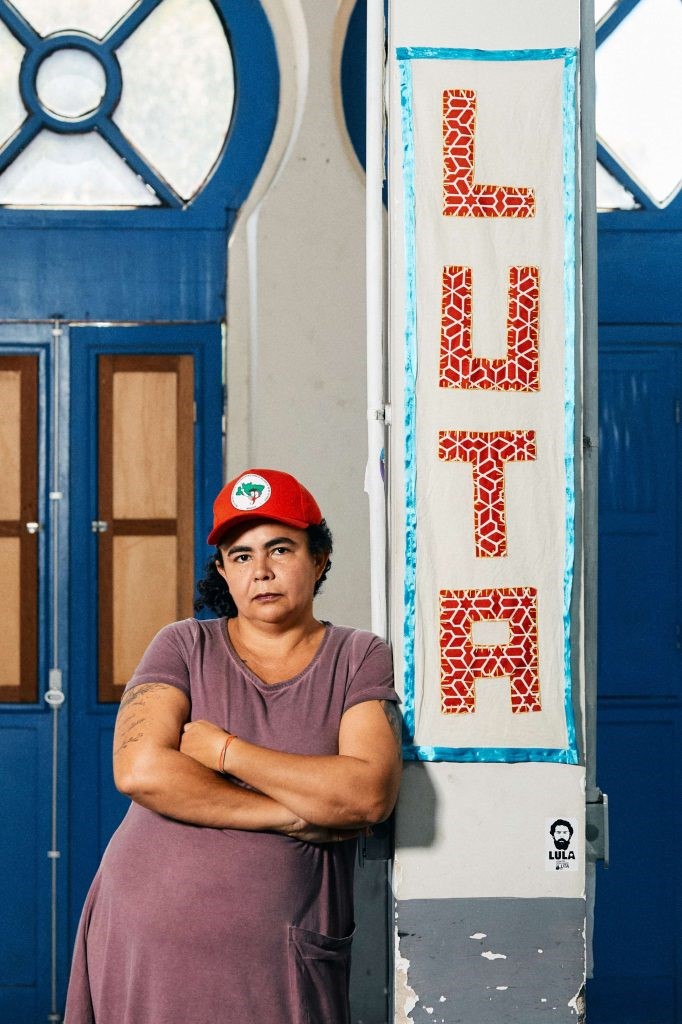‘Peasant feminism resists’: the struggle of Lucineia Freitas in Brazil’s Landless Workers’ Movement

Born in the countryside of Mato Grosso, Brazil, Lucineia Freitas coordinates the national gender sectoral committee of Brazil’s Landless Workers’ Movement (MST). This text tells the story of her struggle for land and her considerations on the role of women in the movement.
Lucineia’s life experience has been connected to the land since her earliest years, both in her work and in her struggles. ‘I grew up working the soil and going to unions’, she remembers. Her hometown, Nobres, saw her be born to peasant parents and share her home with six siblings.
In the 1990s, her territory underwent great conflicts for land, and her father was a member of Nobres Rural Workers Union. ‘This played a vital role in the education of all of my parents’ children’, she tells.
Lucineia decided to follow her father’s steps. After having always studied at public schools, she was admitted to the Federal University of Mato Grosso do Sul (UFMG) for a degree in Forest Engineering. During her course, she joined student activism through Brazil’s Forest Engineering Students Association (ABEEF) and eventually discovered MST.

When she graduated in 2006, she became an MST activist. She saw the movement as a way to pursue a career, since she was not interested in joining her state’s logging sector. ‘MST opens a path by providing our settlements not only with technical Forest Engineering debates, but also with political conversations’, she adds.
Since then, she has never left MST after 16 years of activism during which she also made progress with her studies, with an MA in Education and a PhD in Public Health.
Lucineia now lives in Rio de Janeiro with Luan, her son. After a long journey in MST, which included various sectors and positions, now she is devoted to the movement’s gender area. “We realized that women, despite their outstanding leadership, were distant from decision-making, and that’s the connection we are focused on building.” It results that their work emphasizes the political education and productive organization of women in the movement.

They also share a perception: the need to consider agroecology as more than a production issue, but rather as a space for discussing human relationships.
‘We cannot produce healthy food based on sick relationships. We cannot produce agroecological products when there is violence against women and children’, the activist states.
She sees agroecology as more than producing food without pesticides, genetically modified organisms and fertilizers. ‘It is a way to rethink our relationship with the land, with nature and with ourselves’, she says. According to her, our mode of production is based on violence. Therefore, we must first of all challenge this issue in order to reconstruct it in a different way.
She claims that traditional gender roles in rural environments have led women to be more connected to agroecological experiences. They are in charge of taking care of yards, which include a rich diversity of vegetables, ornamental plants and edible species. The concept of agroecology comprehends such diversity.

Via Campesina, a peasant movement which gathers organizations from all over the world – including MST –, has reflected on women’s vital role both in agroecology and in the struggle for land to coin the concept of popular peasant feminism.
‘We in MST see popular peasant feminism as a practice of resistance. We understand territories and people as spaces attacked by capital, patriarchy and racism, and we oppose these attacks. Violence against territories also affects our bodies’, she states.
‘To ensure women’s autonomy, opposing agricultural, water and mining corporations is as essential as opposing domestic violence, patriarchy and sexism’, she adds.
When asked what kind of Brazil her activism aims to build, Lucineia remembers one of German feminist philosopher Rosa Luxemburg’s mottos: ‘For a world where we are socially equal, humanly different and totally free.’ Also, she wants to be ‘a seed of the movement against the violation of the right to healthy food, housing, health, education, leisure and culture, as well as against racial, patriarchal and class violence”.
This text is part of the “Feminisms” collection, a joint effort by Nós and Rosa Luxemburg Foundation aimed at telling the stories of women who devote their lives to politics.
Photos: Thayna Bonin
